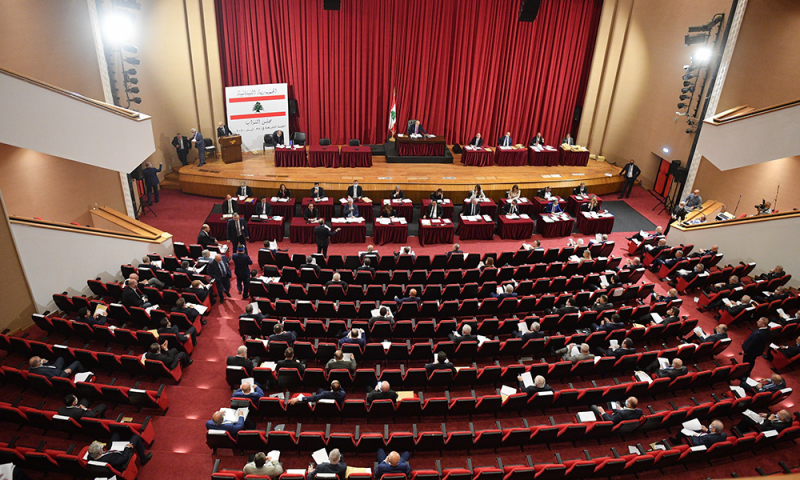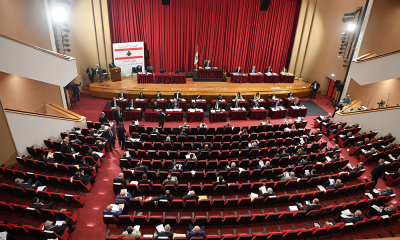The newspaper "Call of the Homeland" wrote: Externally, both the Arab and international families are dealing with Lebanon along two parallel yet distinct paths. The first path involves reducing interaction and communication with the state and its institutions, considering them "militarily collapsed" under the grip of the "mafia and militia" coalition, which is resistant to implementing the required reforms and rescue plans for the country. The second involves expanding direct assistance to the Lebanese people without going through any official channels, fearing that such aid may end up being embezzled and stolen, as has been the fate of previous initiatives over the years and decades.
Meanwhile, the U.S. administration continues to pursue its own agenda by tracking down wanted leaders and members of "Hezbollah." Recently, the Treasury Department issued a statement via its "Rewards for Justice" account seeking information on those involved in the 1983 bombing of a truck in front of the U.S. Embassy in Beirut, offering a reward of up to $3 million.
Internally, the authority pursues its usual agenda of stifling the voices of the Lebanese and silencing anyone who dares to raise their voice in objection, branding them as enemies, traitors, and agents of foreign embassies. This is aimed at discouraging the public from any hope of effecting a democratic change in the country's representative reality, based on the notion that "those who scream loudly will gain nothing but a sore throat," according to Hezbollah's Deputy Secretary-General Sheikh Naeem Qassem.
For those who do not retreat from challenging the March 8 majority in the upcoming elections, it is clear that the authority is preparing to wage an "electoral guerrilla war" against them, aiming to suppress their movement and intimidate their voters. This has manifested in incidents like what occurred in Sarafand, where bullets were fired to prevent the announcement of an opposition list against the Shiite duo in the region, as well as through tactics like "night bats" setting fire to the images and banners of opposing candidates in the capital, as occurred with the tearing of the poster of the list supported by President Fouad Siniora. In the evening, they threw "burnt oil" on the candidate Paula Yacoubian’s images following the launch of her electoral campaign in Beirut's first district.
In contrast, the "Easter" sermon sharply pointed out the ineffectiveness of the ruling political class in generating the necessary solutions to lift the Lebanese people from their crisis. Maronite Patriarch Bechara Rai was explicit, before President Michel Aoun, in calling on voters to pursue a democratic uprising at the ballot boxes to break the chains of "domination and subjugation... so that there remains only one republic, one legitimacy, one weapon, one decision, and a unified Lebanese identity." He expressed strong determination to conduct parliamentary elections on time as a preliminary step to elect a new president and start the reform journey "as a necessary path to reviving the country," emphasizing that "reforms must be accompanied by the state's authority extending over all its territories and the unification of arms and decision, in line with Security Council resolutions, and the adoption of strategic options that enhance Lebanon's relations with its Arab surroundings and the democratic world."
On the margins of the holiday Mass in Bkerke, Rai held a retreat with the President, focusing on "three main topics," according to informed sources quoted by "Call of the Homeland." Their first focus was the necessity of ensuring the inevitability of conducting parliamentary elections on May 15, regardless of the circumstances, as this would serve as an indicator for launching into the next phase and affirming that there are no intentions to disrupt the schedule of constitutional entitlements, particularly the presidential elections on time.
The retreat further emphasized the urgency of conducting binding parliamentary consultations to select a president tasked with forming the new government after the parliamentary elections, as the current government will be deemed resigned by the end of the current council’s term and after electing the President of the Parliament, his deputy, and the council's bureau. It was insisted that the new government should be formed within a timeframe not exceeding June 12.
Building on this, the sources pointed out that the third topic stressed during the Bkerke retreat is that the visit of Pope Francis to Beirut on June 12-13 should coincide with the completion of Lebanon's constitutional obligations, ensuring a new parliamentary council and a new government, sending a clear Lebanese message to the Pope that there is a Lebanese will for changing the behavior of procrastination and obstruction, which will undoubtedly encourage further papal support for Lebanon.
The sources concluded by highlighting that "Pope Francis's visit is a significant international and moral umbrella for Lebanon in light of the threats facing the entity, and it is therefore essential to transform this visit into an opportunity for genuine dialogue among all components and forces within the Lebanese spectrum, embarking on a new approach that may alleviate some of the catastrophes and miseries that have led most of its people into a state of extreme poverty."




